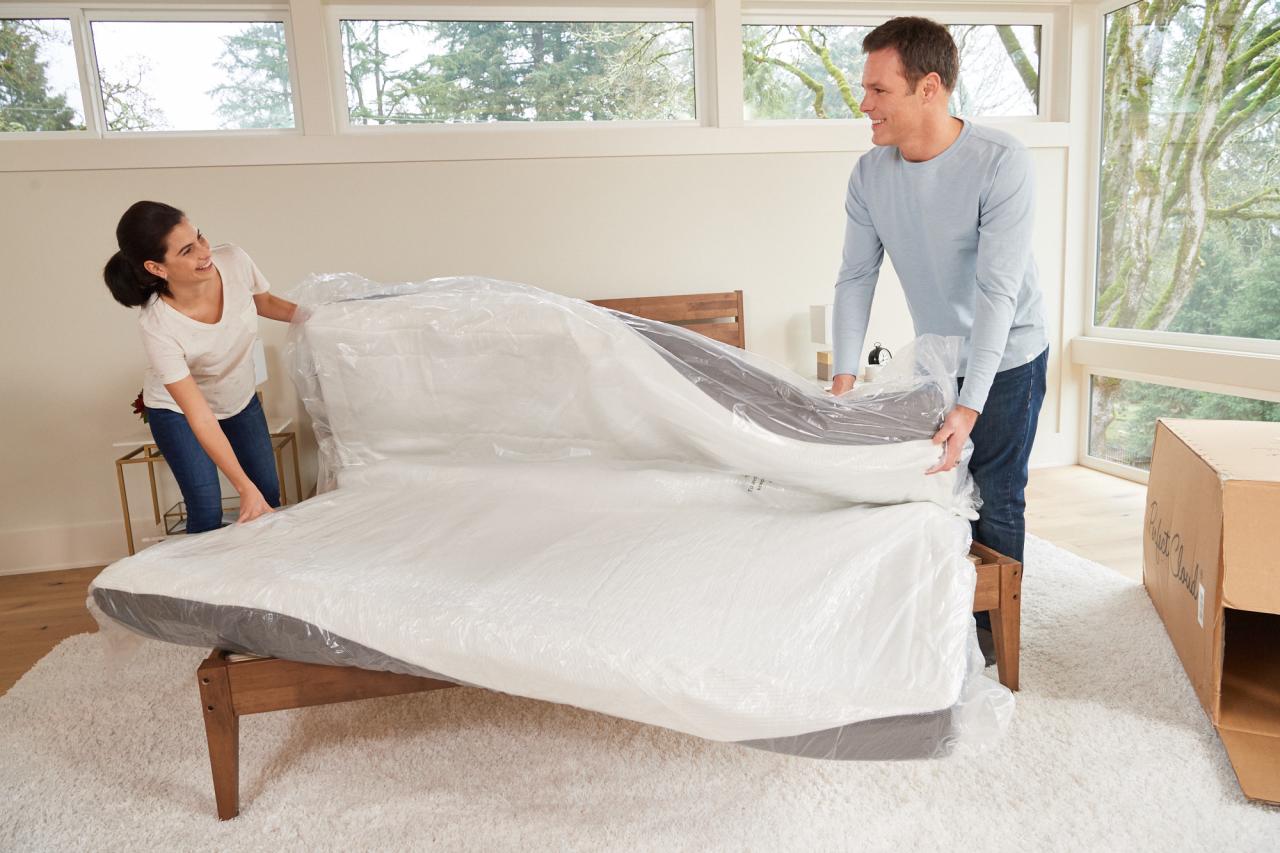Quality sleep is vital for various aspects of health, including energy levels, cognitive function, sickness prevention, and mood improvement. While maintaining a consistent bedtime routine and practicing good sleep hygiene are essential, the right mattress plays a significant role in achieving restful sleep.
Sleeping on the wrong mattress can undermine your efforts to get quality shut-eye. It’s important to choose a mattress designed for your sleeping position and body type. Additionally, an old mattress can have negative effects on both sleep and overall health. Let’s explore how sleeping on an old mattress can be detrimental and how to recognize the need for a replacement.
Ways Sleeping on an Old Mattress Can be Bad for You
Sleeping on an old mattress can have negative consequences for your sleep quality and overall well-being. Here are some ways in which an old mattress can be detrimental to your health:
- Lack of Support: Over time, an old mattress may lose its ability to provide adequate support to your body. This can lead to discomfort, improper spinal alignment, and increased pressure on certain areas of your body. Poor support can result in back pain, muscle stiffness, and restless sleep.
- Allergen Accumulation: As mattresses age, they can accumulate allergens such as dust mites, dead skin cells, and mold. These allergens can trigger allergies, asthma symptoms, and respiratory issues. Breathing in these allergens during sleep can lead to disrupted sleep patterns and negative impacts on your respiratory health.
- Hygiene Concerns: Old mattresses may become a breeding ground for bacteria, germs, and fungi that are difficult to eliminate completely, even with regular cleaning. This can increase the risk of infections, skin irritations, and other health issues. Maintaining good hygiene is essential for a healthy sleep environment.
- Decreased Comfort: As a mattress deteriorates over time, it loses its ability to provide optimal comfort. Lumps, sagging areas, and uneven surfaces can make it difficult to find a comfortable sleeping position. Disrupted sleep caused by discomfort can result in daytime fatigue, mood disturbances, and reduced cognitive function.
More Disadvantages of Using an Old Mattress
Using an old mattress can present several disadvantages that can affect both your sleep quality and overall health. Here are additional drawbacks of sleeping on an old mattress:
- Increased Pain and Discomfort: As a mattress ages, it loses its ability to provide proper support and cushioning. This can result in increased pain and discomfort, especially in areas such as the back, neck, and joints. Waking up with aches and pains can significantly impact your daily life and overall well-being.
- Sleep Disturbances: An old mattress may not effectively isolate motion transfer, meaning that any movements made by you or your partner can easily disturb your sleep. This can lead to restless nights and frequent awakenings, hindering your ability to get deep, uninterrupted sleep.
- Poor Sleep Posture: A sagging or worn-out mattress fails to maintain proper spinal alignment, which is crucial for healthy sleep posture. Sleeping in an unsupported position can strain your muscles and joints, leading to discomfort and potential long-term musculoskeletal issues.
- Allergic Reactions: Over time, mattresses accumulate allergens such as dust mites, pollen, and pet dander. These allergens can trigger allergic reactions and worsen respiratory conditions like asthma or allergies. Breathing in these particles during sleep can disrupt your breathing and contribute to poor sleep quality.
- Decreased Hygiene: Despite regular cleaning efforts, an old mattress may harbor stains, odors, and bacteria that are difficult to remove completely. This can create an unhygienic sleeping environment and increase the risk of skin irritations, infections, and unpleasant odors.
When and How Often Should You Replace Your Mattress?
According to experts like Dr. Ahmed and Dr. Sriram, the general recommendation for replacing a mattress is every 7 to 10 years, although lower quality mattresses may need replacement sooner. Some clear signs that it’s time to replace your mattress include waking up with aches and discomfort, struggling to get comfortable in bed, experiencing poor sleep quality, sagging, lack of support, noticeable wear stains, and lumps in the mattress.
Dr. Sriram also advises paying attention to other factors such as feeling overheated during sleep or experiencing worsened allergies or asthma symptoms. These can also serve as indicators that it’s time for a new mattress. Additionally, if you find that you are more comfortable and experience better sleep on other sleeping surfaces, such as hotel beds, guest room beds, or even your sofa, it may be a clear sign that your current mattress is no longer providing the comfort and support you need for restful sleep.
How to Extend the Life of Your Mattress
It’s understandable that many consumers seek alternatives to replacing an old mattress due to the associated costs and inconvenience. Dr. Conrad acknowledges that mattresses can be expensive, ranging from $500 to $5,000, and disposing of the old mattress can be challenging, often requiring the assistance of two people. As a result, many individuals continue using their old mattress until it becomes too worn out to provide adequate support and comfort.
However, if you’re not quite ready to replace your mattress, there are strategies to help prolong its lifespan. Dr. Conrad suggests rotating or flipping the mattress every three months to distribute wear and tear more evenly. For memory foam mattresses that cannot be flipped, simply rotating them can still provide benefits by preventing excessive wear in specific areas.
Dr. Sriram recommends using a mattress protector to shield the mattress from spills, stains, and allergens. Opening windows regularly can help reduce moisture buildup and minimize the accumulation of dust and mold. Additionally, washing your sheets regularly helps maintain a cleaner sleeping environment and contributes to the overall condition of the mattress.
By implementing these practices, you can potentially extend the life of your current mattress and optimize its performance until you’re ready to invest in a new one. However, it’s important to keep in mind that these strategies are temporary solutions, and eventually, replacing your mattress will be necessary to ensure optimal sleep quality and support.







